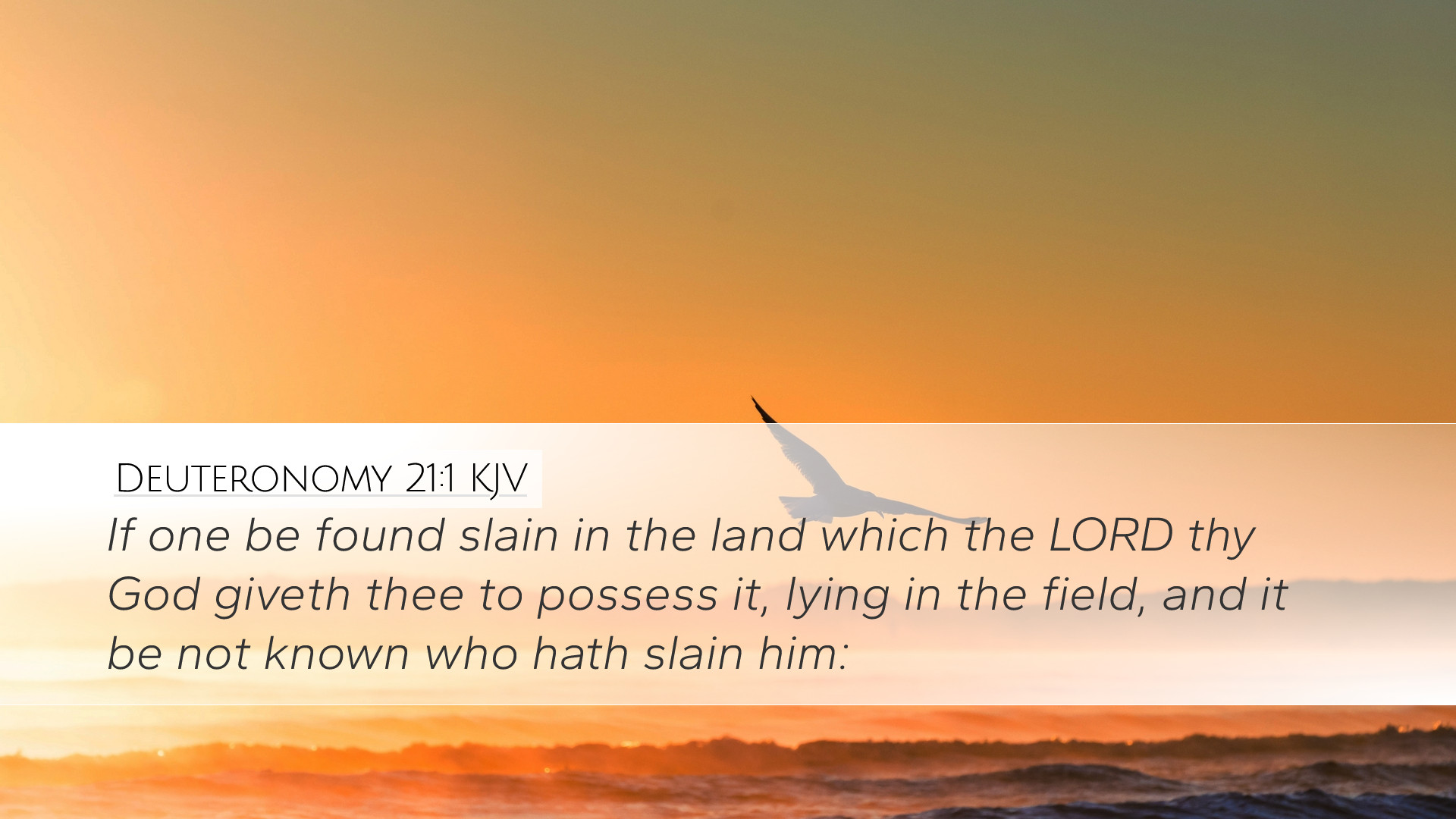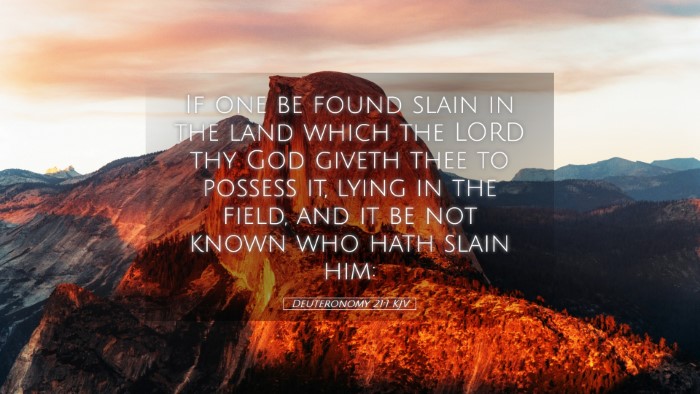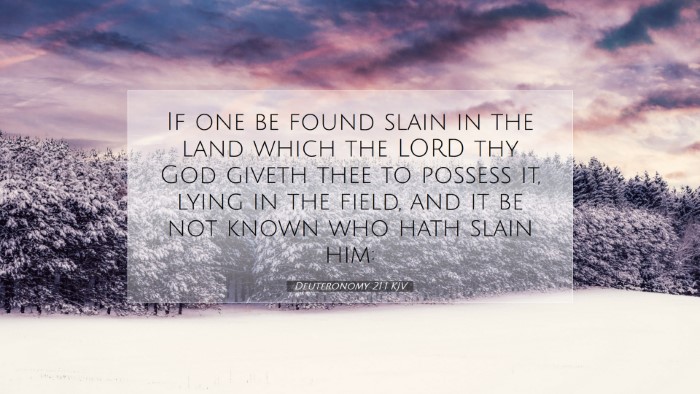Commentary on Deuteronomy 21:1
Verse: "If one be found slain in the land which the LORD thy God giveth thee to possess it, lying in the field, and it be not known who hath slain him."
Introduction
This verse introduces a critical legal provision in ancient Israelite society. The context of Deuteronomy is pivotal as Moses reiterates the Law for the people about to enter the Promised Land. This verse sets the stage for addressing the issue of unsolved murder and the societal ramifications it entails.
Contextual Analysis
The surrounding chapters deal with various laws intended for the smooth functioning of the community as they transition into a new land. This specific verse reflects God's concern for justice and the orderly conduct of community life.
Significance of the Setting
The reference to being "found slain in the land" underscores the importance of the land as a setting for God's covenant people. The land characterized by God's presence must maintain justice. Thus, the presence of an unsolved murder is seen as a grave offense against the covenant community and God Himself.
Theological Insights
This verse serves a dual purpose. First, it highlights the importance of addressing violence and injustice in society. Second, it reflects God's sovereignty and care for His people, indicating His requirements for holiness and righteousness within the community.
Moral Implications
The requirement to deal with a "slain" person reflects the moral obligation of society to seek justice. According to Matthew Henry, neglecting the murder affects the entire community, instigating guilt and divine disfavor upon the people.
Duties of Leaders and Individuals
Albert Barnes emphasizes the role of the leaders of the community in addressing such a tragedy. They must lead the community in mourning and proceeding with a just inquiry into the matter. The inability to identify the perpetrator highlights the communal responsibility of all citizens to uphold justice and righteousness.
Legal Procedures Involved
As we progress into subsequent verses, we note a legal procedure that was intended to appease God's wrath at such an unresolved case. The elders and judges of the city nearest to where the body is found bear the responsibility of conducting an inquiry and performing a ceremony to atone for the bloodshed.
Adam Clarke's Perspective
Clarke suggests that the ritualistic aspects reflect ancient Near Eastern traditions, yet also aim specifically at the God of Israel, embodying the unique covenantal relationship. The act of atonement performed underscores God's sensitivity and desire for purity within His covenant community.
Implications for Contemporary Readers
This passage continues to resonate in contemporary discussions regarding justice, community responsibility, and the understanding of atonement. It encourages pastors and theologians to examine how these ancient laws inform modern ethics and community living.
Trust in God's Justice
The challenge extended through this verse compels modern readers to trust in divine justice, invoking discussions on the role of the church in seeking justice in society today. Believers are encouraged to actively participate in forming and promoting a just community while seeking reconciliatory means when faced with unresolved conflicts or disputes.
Conclusion
Deuteronomy 21:1 is a powerful reminder of the seriousness of violence, the necessity for justice, and the communal obligations that arise within the framework of God's covenant community. Insights from historic commentaries provide depth and wisdom that continue to inform our understanding of justice, morality, and community in today's world.
Key Takeaways
- The Importance of Justice: The call for justice in cases of violence is paramount for the health of the community.
- Moral Responsibility: Each individual and leader has a part in upholding community righteousness.
- God's Sovereignty: The narrative reflects God’s sovereign oversight and care over His people and land.
- Ritual and Atonement: The procedures illustrate the link between law, justice, and the necessity of reconciliation in God’s economy.


